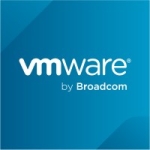The solution is useful in many ways. If you want to invest in on-prem infrastructure, it is going to be a huge cost. If you could add auto-scaling features and load balancing features on AWS Cloud, the e-commerce site can use the autoscale feature to handle any traffic threshold or additional workloads. I have two, three customers who are using this feature and they are getting benefits out of it.
Amazon, in terms of cloud infrastructure, is really robust.
The product is scalable.
They provide cutting-edge features compared to other cloud vendors.
They offer many services that are unique to AWS.
The availability is a good feature. They have certain criteria. For global virtualization, if you want to scale and operate across the world, AWS can provide the infrastructure without limiting the performance. They have those provisions such as availability.
In terms of latency and other things, AWS is great.
The online knowledge base is very helpful and has a vast amount of information for users.
The solution could always have better performance.
Some extensions are better than others.
We'd like it if the solution was more secure.
I've been dealing with the solution for over three years. It's been a while.
The solution is robust and stable. The solution is reliable. There are no bugs or glitches. It doesn't crash or freeze. It's reliable.
The solution is highly scalable, especially for the storage part. They have storage called S3 Object Store, which is virtually unlimited. You can scale it to an unlimited amount. It's great.
For AWS, if I compare it to Huawei, Huawei support, Huawei is better compared to AWS, however, AWS is better compared to Google and Oracle or SAP and all of those other clouds. Due to the fact that AWS has a very good knowledge base, you can easily find answers to any issue you might have.
I've also used similar solutions such as Oracle and Azure. I've also dealt with Huawei.
As a cloud-based solution, there isn't really an installation process.
While some clients will take a monthly subscription, we tend to do an SLA reseller with them for a one-year or three-year contract.
I'm a reseller.
As a cloud-based solution, we're always on the latest version. We don't have to manually update it.
I'd rate the solution at a ten out of ten. Even compared to other solutions, such as Oracle and Azure, it is much better.
I've been a specialist for AWS for installation, however, I recommend solutions based on the company's requirements. However, it will help them in many ways.


















